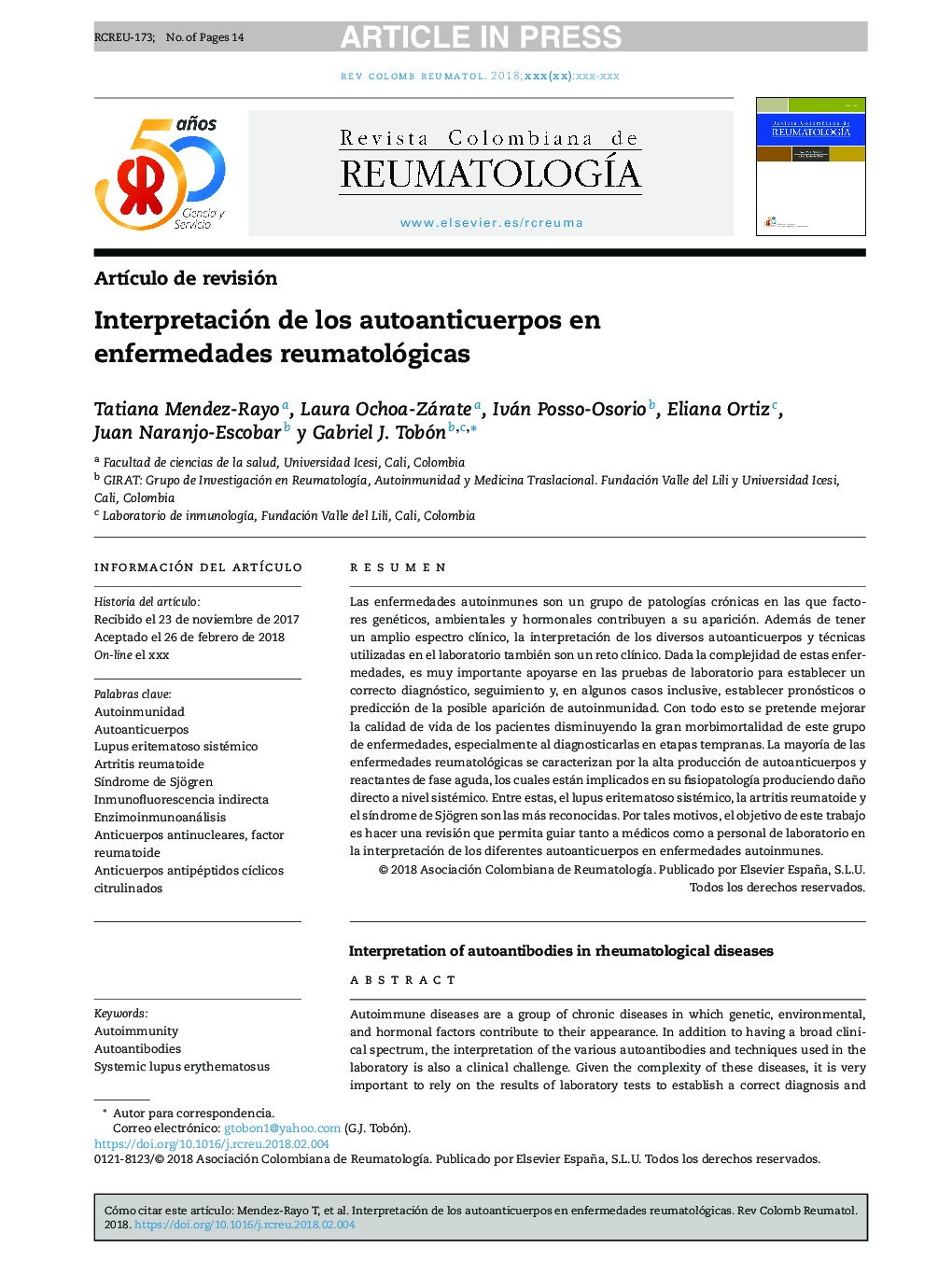| Article ID | Journal | Published Year | Pages | File Type |
|---|---|---|---|---|
| 8742711 | Revista Colombiana de Reumatología | 2018 | 14 Pages |
Abstract
Autoimmune diseases are a group of chronic diseases in which genetic, environmental, and hormonal factors contribute to their appearance. In addition to having a broad clinical spectrum, the interpretation of the various autoantibodies and techniques used in the laboratory is also a clinical challenge. Given the complexity of these diseases, it is very important to rely on the results of laboratory tests to establish a correct diagnosis and follow-up and, in some cases even to establish a prognosis or prediction of autoimmunity. Taking all this into account, it is intended to improve the quality of life of patients by decreasing the increased morbidity and mortality in this group of diseases, especially by early diagnosis. Most rheumatological diseases are characterised by the high production of autoantibodies and acute phase reactants, which are involved in their pathophysiology, leading to systemic involvement. Among these, the most recognised are, systemic lupus erythematosus, rheumatoid arthritis, and Sjögren's syndrome. For these reasons, the objective of this project is to present a review that will help both physicians and laboratory personnel in the interpretation of the different autoantibodies in autoimmune diseases.
Keywords
autoantibodiesenzimoinmunoanalisisAutoinmunidadArtritis reumatoideRheumatoid arthritisAntinuclear antibodiesAutoanticuerposInmunofluorescencia indirectaEnzyme-linked immunosorbent assayautoimmunitySjögren's syndromeSíndrome de Sjögrenrheumatoid factorSystemic lupus erythematosusLupus eritematoso sistémicoAnti-cyclic citrullinated peptide
Related Topics
Health Sciences
Medicine and Dentistry
Immunology, Allergology and Rheumatology
Authors
Tatiana Mendez-Rayo, Laura Ochoa-Zárate, Iván Posso-Osorio, Eliana Ortiz, Juan Naranjo-Escobar, Gabriel J. Tobón,
